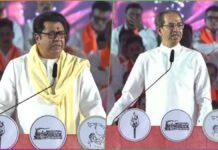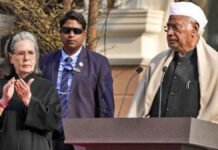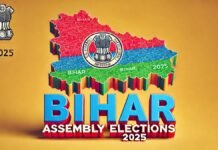
Key Points
- Supreme Court advocate Anas Tanveer has requested Attorney General R Venkataramani’s consent to initiate criminal contempt proceedings against BJP MP Nishikant Dubey.
- Dubey accused the Supreme Court and Chief Justice Sanjiv Khanna of “inciting civil war” and “taking the country towards anarchy,” following the court’s intervention in the Waqf Amendment Act.
- The letter alleges Dubey’s remarks are “deeply derogatory” and “dangerously provocative,” undermining the judiciary’s authority and independence.
- BJP president JP Nadda has distanced the party from Dubey’s comments, labeling them as personal views and reaffirming the party’s respect for the judiciary.
- The controversy reignites debate over parliamentary privilege, judicial independence, and the limits of free speech for public officials.
New Delhi: A major legal and political storm has erupted after BJP MP Nishikant Dubey’s sharp criticism of the Supreme Court and Chief Justice of India (CJI) Sanjiv Khanna. Supreme Court advocate Anas Tanveer, representing a litigant in the Waqf Amendment Act case, has formally written to Attorney General R Venkataramani, seeking approval to initiate criminal contempt proceedings against Dubey under Section 15(1)(b) of the Contempt of Courts Act, 1971.
What Triggered the Controversy?
Dubey’s remarks came in the wake of the Supreme Court questioning the Centre over controversial provisions in the Waqf (Amendment) Act and the government’s assurance not to implement those provisions until further hearings. Reacting to the court’s intervention, Dubey publicly stated that if the Supreme Court “has to make laws, then Parliament and Assemblies should be shut down,” and went further to allege that the apex court is “taking the country towards anarchy” and that CJI Khanna is “responsible for the civil wars taking place in the country”.
He also criticized the court for setting timelines for the President and Governors to act on legislative bills, arguing that lawmaking is the exclusive domain of Parliament under Article 368 of the Constitution.
The Advocate’s Letter: “Dangerously Provocative” and “Scandalising the Judiciary”
In his letter to the Attorney General, Tanveer described Dubey’s statements as “deeply derogatory, misleading, and aimed at lowering the dignity and authority of the Hon’ble Supreme Court of India.” The letter argues that Dubey’s comments recklessly attribute national unrest to the Chief Justice, thereby scandalizing the highest judicial office and provoking potential public dissent and unrest.
Tanveer’s plea highlights that such public statements by a sitting MP constitute a grave attack on the integrity and independence of the judiciary, and urges the Attorney General to sanction criminal contempt action to uphold judicial dignity.
BJP Distances Itself from Dubey’s Comments
The controversy has drawn sharp criticism from opposition leaders and legal experts, with many demanding accountability and respect for judicial independence. In response, BJP president JP Nadda issued a public statement clarifying that Dubey’s remarks were his personal views and not reflective of the party’s position. Nadda reaffirmed the BJP’s respect for the judiciary as a cornerstone of Indian democracy and directed party leaders to refrain from such statements in the future.
Legal and Political Implications
The episode has reignited debate on the boundaries of free speech for public officials, parliamentary privilege, and the constitutional safeguards protecting judicial independence. Legal experts point out that Members of Parliament are not immune from contempt proceedings if their statements are found to undermine the authority or dignity of the courts.
Article 129 of the Constitution empowers the Supreme Court to punish for contempt, and the Contempt of Courts Act, 1971, specifically prohibits acts that “scandalise the authority of the court” or interfere with judicial proceedings.
As the Attorney General reviews the plea, the case is set to test the limits of political speech and underline the judiciary’s role as a pillar of India’s constitutional democracy.





















































